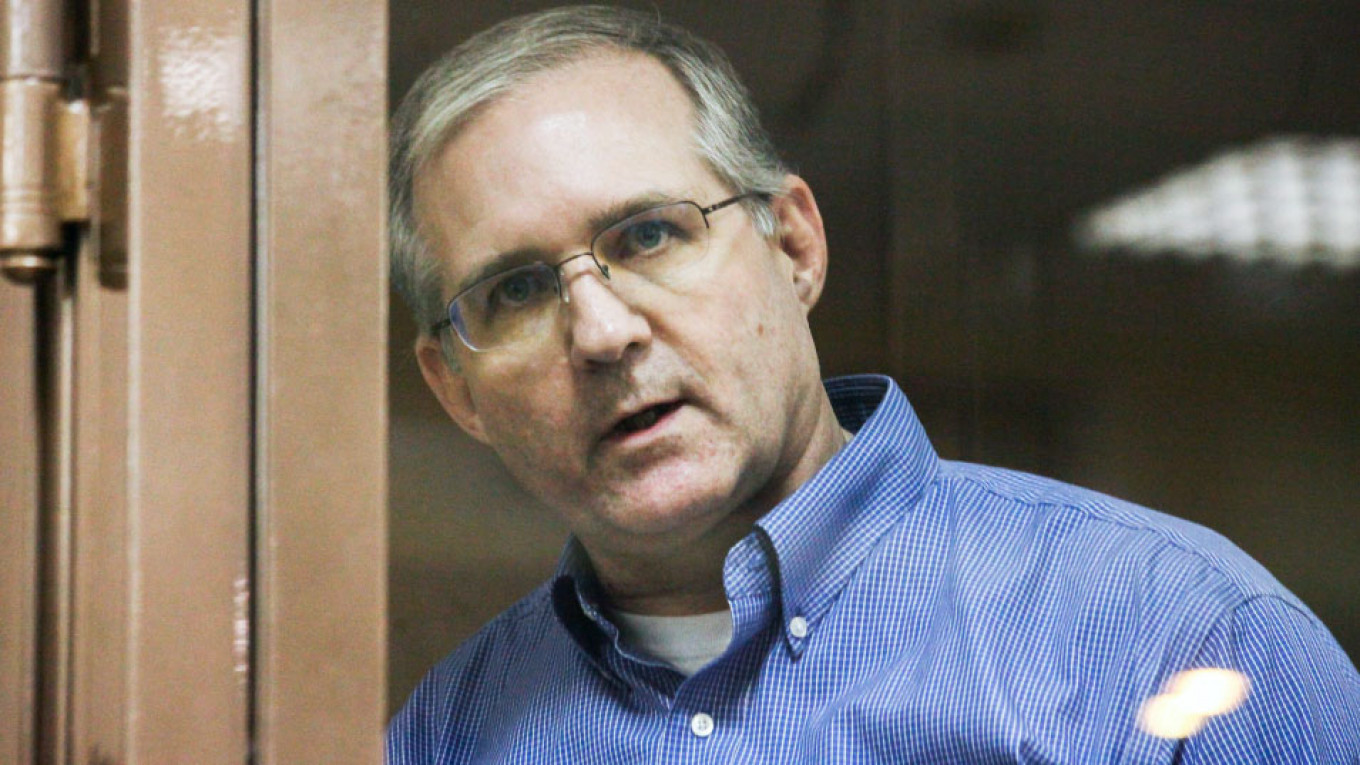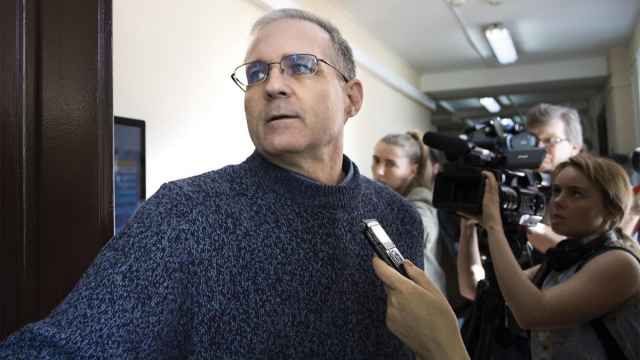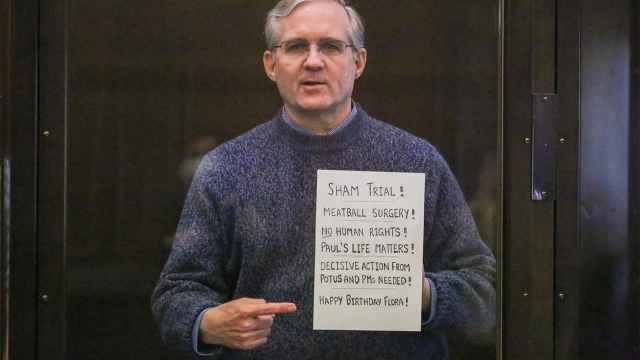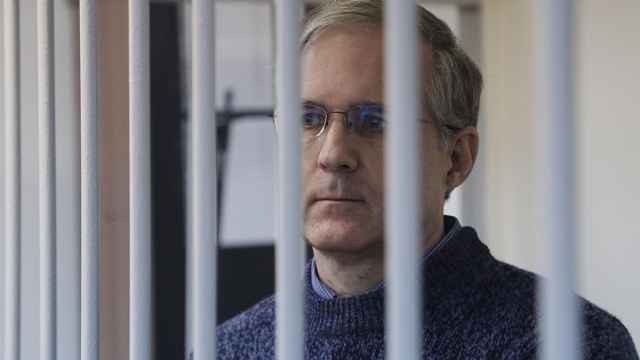Russia on Tuesday accused a former U.S. Marine it has held for almost a year on spying charges of faking health problems in custody and lying about his ill-treatment, comments the U.S. Embassy rejected as factually inaccurate "pulp fiction."
Paul Whelan, who holds U.S., British, Canadian and Irish passports, was accused of espionage after agents from Russia's Federal Security Service detained him in a Moscow hotel room on Dec. 28. Whelan, who is being held in pre-trial detention, denies Moscow's allegations and says he was set up in a political sting.
He has alleged at court hearings that he is being subjected to ill treatment in custody and that his complaints are systematically ignored. In October, he said a prison guard had forced him to his knees and threatened him with a gun.
In August, Whelan's lawyer said his client was suffering from a groin hernia that prison authorities were aggravating, prompting the U.S. Embassy to demand immediate access to Whelan.
A U.S. diplomat met him last week in jail and called for his immediate release. The U.S. embassy described Whelan's treatment as "shameful" and said Moscow had refused permission for an outside doctor to examine him.
On Tuesday, the Russian Foreign Ministry said Whelan's allegations of ill-treatment had not checked out and that diplomats were being granted regular access to him in custody.
"They (the diplomats) know perfectly well that the public statements by the accused about certain abuses and even threats (made to his) life in pre-trial detention — are nothing more than the defense's provocative line to help artificially create noise around his person," the ministry said in a statement.
It said Whelan had received qualified medical treatment from the detention facility's doctors as well as a special clinic and that they had not found him to have any serious ailment.
"So there is no threat to Whelan's health, and the pretending which he is periodically resorting to is apparently part of the training for U.S. intelligence officers," the ministry said.
The U.S. Embassy in Moscow rejected the statement on social media, saying Whelan's health was deteriorating, that he needed an independent medical examination to assess his condition and that Moscow had presented no evidence of his guilt.
"The Ministry of Foreign Affairs should stop distorting the facts. #PaulWhelan is not a spy. Still no evidence. Still no calls to his family. Enough is enough. Let Paul go home," the embassy wrote on Twitter.
A Message from The Moscow Times:
Dear readers,
We are facing unprecedented challenges. Russia's Prosecutor General's Office has designated The Moscow Times as an "undesirable" organization, criminalizing our work and putting our staff at risk of prosecution. This follows our earlier unjust labeling as a "foreign agent."
These actions are direct attempts to silence independent journalism in Russia. The authorities claim our work "discredits the decisions of the Russian leadership." We see things differently: we strive to provide accurate, unbiased reporting on Russia.
We, the journalists of The Moscow Times, refuse to be silenced. But to continue our work, we need your help.
Your support, no matter how small, makes a world of difference. If you can, please support us monthly starting from just $2. It's quick to set up, and every contribution makes a significant impact.
By supporting The Moscow Times, you're defending open, independent journalism in the face of repression. Thank you for standing with us.
Remind me later.






